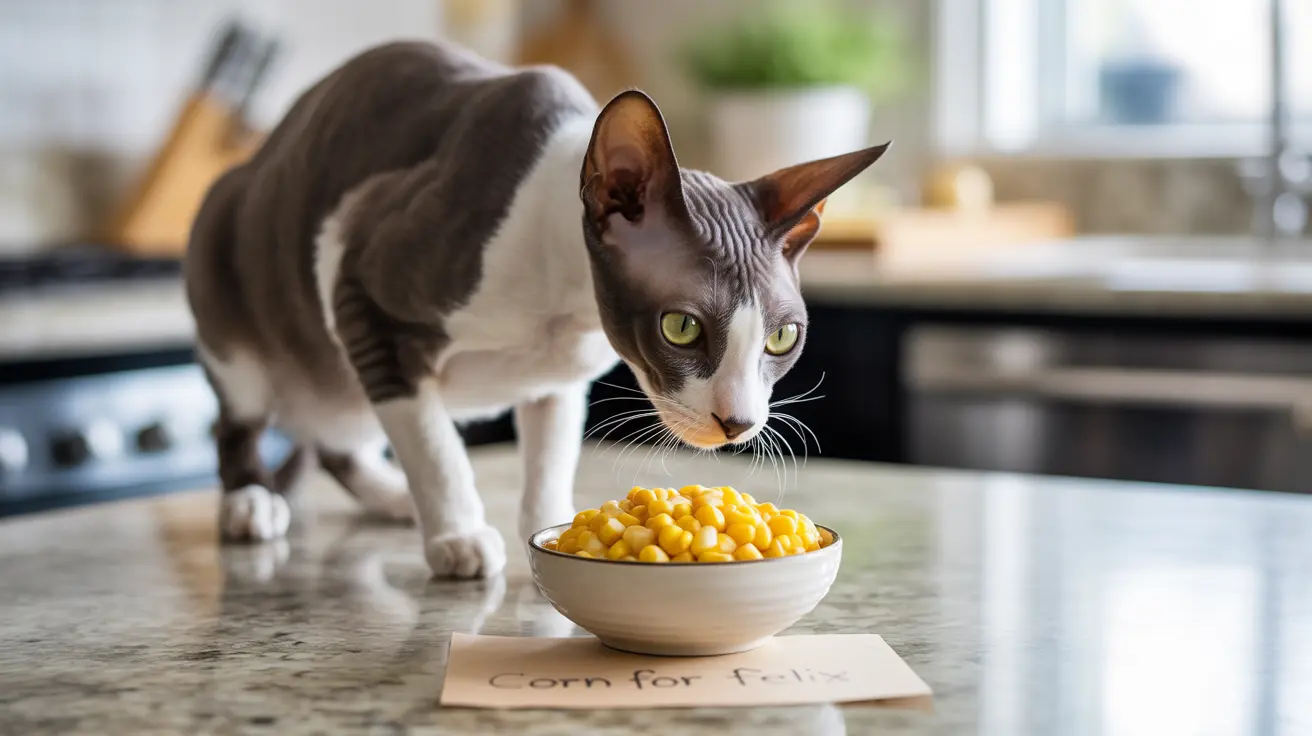Many cat owners wonder about sharing human foods with their pets, and corn is no exception. While cats can technically eat corn, understanding the benefits, risks, and proper serving methods is crucial for your feline's health and safety.
As obligate carnivores, cats have specific dietary needs that primarily revolve around meat-based proteins. While corn isn't toxic to cats, it's important to understand its role in feline nutrition and how to safely incorporate it into your cat's diet, if at all.
Understanding Corn's Role in Feline Nutrition
Corn appears frequently in commercial cat foods as a filler ingredient, but its nutritional value for cats is limited. While processed corn can provide some carbohydrates and dietary fiber, it lacks many essential nutrients that cats need for optimal health.
When properly processed, corn offers:
- Small amounts of plant-based protein
- Dietary fiber for digestion
- Some essential fatty acids
- Carbohydrates for energy
Safety Considerations When Feeding Corn to Cats
If you're considering offering corn to your cat, several important safety factors should guide your decision:
Preparation Methods
Only serve corn that is:
- Plain and fully cooked
- Free from seasonings, butter, and salt
- Removed from the cob
- Cut into small, manageable pieces
Potential Risks
Be aware of these potential hazards:
- Choking risks from corn kernels
- Digestive blockages from corn cobs
- Allergic reactions in sensitive cats
- Blood sugar spikes from excessive carbohydrates
How to Safely Introduce Corn to Your Cat's Diet
If you decide to offer corn to your cat, follow these guidelines:
- Start with a tiny amount (1-2 kernels)
- Monitor for any adverse reactions
- Limit corn treats to less than 10% of daily caloric intake
- Always serve plain, cooked corn
- Maintain focus on meat-based protein as the primary nutrition source
When to Avoid Feeding Corn to Cats
Some cats should not eat corn, including those with:
- Diagnosed corn allergies
- Diabetes or blood sugar issues
- Obesity or weight management challenges
- Sensitive digestive systems
- Existing health conditions (consult your vet)
Frequently Asked Questions
Can cats eat corn safely, and what are the potential risks?
Cats can safely eat small amounts of plain, cooked corn occasionally. However, risks include choking hazards, digestive issues, and potential allergic reactions. Never feed cats corn on the cob or corn with seasonings.
How much corn can I safely give my cat as a treat?
Corn should make up no more than 10-15% of your cat's daily caloric intake. For most cats, this means just a few kernels as an occasional treat, not as a regular part of their diet.
Is corn a good source of nutrients for cats, or is it just a filler?
Corn primarily serves as a filler ingredient with minimal nutritional value for cats. While it provides some fiber and carbohydrates, cats require nutrients from animal-based proteins for optimal health.
What are the health risks of feeding corn to cats, especially if they have allergies?
Health risks include allergic reactions (skin irritation, digestive upset), blood sugar spikes, potential weight gain, and nutritional imbalances if fed in excess. Cats with known allergies should avoid corn completely.
Can I feed my cat canned corn, and if so, how should it be prepared?
Canned corn can be fed to cats if it's plain, well-drained, and free from added salt or seasonings. However, fresh, cooked corn is generally a better option. Always serve in small portions and at room temperature.
Conclusion
While cats can eat corn in moderation, it shouldn't be a significant part of their diet. Focus on providing your cat with high-quality, meat-based protein sources, and consider corn only as an occasional treat. Always consult with your veterinarian before introducing new foods to your cat's diet, especially if your pet has existing health conditions.






